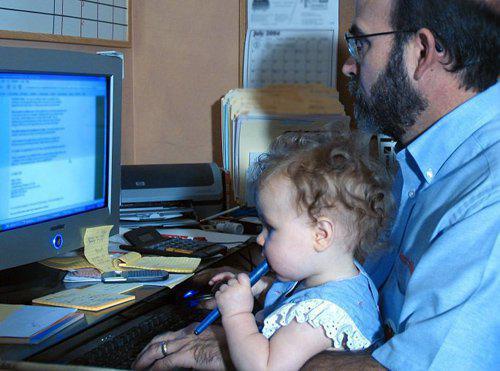Recent Blog Posts
Will My Ex Go to Jail for Not Paying Child Support?

Child support is taken seriously by Illinois law. Parents who willfully do not comply with child support orders can face severe consequences.
The key word, however, is “willfully.” The law understands that sometimes circumstances change. The parent who was ordered to pay child support - also referred to as the payor or obligor - may have a valid reason for no longer being able to make payments. But if payments are withheld deliberately, the parent will face serious penalties.
The best way to understand how Illinois law will view your case is to contact a qualified Illinois child support attorney.
What Are the Penalties for Withholding Child Support?
The penalties for withholding child support largely depend on how much has been withheld or for how long. These and other factors determine whether a parent is guilty of a felony or misdemeanor under Illinois law. For example:
Prenups and Divorce: What You Need to Know
 Navigating the murky waters of divorce can be difficult, but having a prenuptial agreement can simplify the process. In Illinois, prenuptial agreements, or “prenups” as they are often called, are legal contracts entered into before marriage that lay out specific financial expectations and responsibilities. Contact a friendly and personable trusted attorney at A. Traub & Associates to ensure you can effectively utilize your prenup to make your divorce a more efficient process.
Navigating the murky waters of divorce can be difficult, but having a prenuptial agreement can simplify the process. In Illinois, prenuptial agreements, or “prenups” as they are often called, are legal contracts entered into before marriage that lay out specific financial expectations and responsibilities. Contact a friendly and personable trusted attorney at A. Traub & Associates to ensure you can effectively utilize your prenup to make your divorce a more efficient process.
The Power of Prenups is Establishing Clarity
Understanding prenups is the first step towards learning how, in a divorce, such agreements can be beneficial. Since prenups are contractual agreements that govern how different assets and liabilities get divided in the event of a divorce. Therefore, a prenup can provide couples with a very clear understanding of property rights, spousal support, and more. As a result, prenups can bring clarity in the midst of the emotional turmoil that can often take place during a divorce.
How Can My Spouse’s Gambling Addiction Affect My Divorce?
 Getting divorced opens up your personal life to legal scrutiny. Behaviors that you may previously have been able to keep under wraps can now have serious legal consequences.
Getting divorced opens up your personal life to legal scrutiny. Behaviors that you may previously have been able to keep under wraps can now have serious legal consequences.
An example of this is gambling. If your spouse has a gambling addiction and it surfaces during the divorce proceedings, it can have a major effect on the outcomes of the divorce. Seek the counsel of an experienced attorney in Illinois if you are getting divorced and think your spouse might have a gambling addiction.
This article will discuss how a gambling addiction can affect a divorce.
Assets Can Be Frozen
You and your spouse are both entitled to what Illinois law calls marital property. This refers to assets that belong to both spouses, usually acquired during the marriage. Using any of these assets for something that is not related to the marriage, or abusing them so that their value goes down, is called dissipation of assets.
What Are the Pros and Cons of Open Adoption?
 There are three types of adoption in Illinois when it comes to involving the biological parents: open adoption, semi-open adoption, and closed adoption.
There are three types of adoption in Illinois when it comes to involving the biological parents: open adoption, semi-open adoption, and closed adoption.
-
In an open adoption, the biological parents remain involved and maintain a relationship with the child.
-
In a semi-open adoption, the biological parents are somewhat involved in the child’s life but are not in frequent contact.
-
In a closed adoption, there is no contact with the biological parents at all. The adoption is handled strictly through a third party like an adoption agency, which fields all communication between the biological and adoptive parents.
Open adoption can be an attractive option, but it is not for everybody. This article will discuss the pros and cons of open adoption.
If you are unsure which type of adoption may be right for you, consult with an Illinois adoption attorney who will talk to you about the adoption process and what is in the best interest of the child.
My Child is Going to College. Do I Still Have to Pay Child Support?
 Making changes to child support payments, also known as child support modification, is not a simple process. Illinois law generally requires courts to wait two years before modifying a child support order.
Making changes to child support payments, also known as child support modification, is not a simple process. Illinois law generally requires courts to wait two years before modifying a child support order.
But the law also recognizes that circumstances change and sometimes it is necessary to make adjustments. If you need to modify your child support payments, contact a family lawyer in Illinois who can advise you on whether you have good cause.
This article will discuss how courts calculate child support and when you can request to modify child support payments.
How Do Courts Calculate Child Support Payments?
When calculating Child support payments, courts want to find out how much a child needs and how much of that the parents can afford.
To find those answers, the court will look at several factors, including:
-
The child’s financial needs
-
The child’s educational needs
I Never Signed a Prenup. Did I Lose My Chance?
 A prenuptial agreement is a legally binding document that some couples sign before marriage. It outlines the rights and responsibilities of each party in the event of a divorce, the most important of which is usually asset division. A prenuptial agreement can help make many parts of the divorce process go smoother because many issues have already been settled.
A prenuptial agreement is a legally binding document that some couples sign before marriage. It outlines the rights and responsibilities of each party in the event of a divorce, the most important of which is usually asset division. A prenuptial agreement can help make many parts of the divorce process go smoother because many issues have already been settled.
Signing a prenuptial agreement can improve your chances of having an uncontested divorce, which is when both parties agree on all parts of the divorce. Still, many couples shy away from signing an agreement because it is emotionally difficult to discuss the end of the marriage.
If you got married without signing a prenuptial agreement, the first step is to contact a qualified family lawyer in Illinois who can help you draft a postnuptial agreement.
What is a Postnuptial Agreement?
A postnuptial agreement is like a prenuptial agreement except it is signed after marriage. Under Illinois law, a postnuptial agreement addresses certain issues that can come up if the couple gets divorced or if one of the spouses dies. It can, for example, determine:
The Importance of Updating Your Estate Plan After Divorce
 Going through a divorce is tough, and it can turn your whole world upside down. Through all the emotional turmoil, it is important not to neglect the practical matters, like updating your estate plan. If you have recently divorced, make sure to review and revise your estate planning documents with an Illinois estate planning lawyer who understands how divorce can affect estate plans.
Going through a divorce is tough, and it can turn your whole world upside down. Through all the emotional turmoil, it is important not to neglect the practical matters, like updating your estate plan. If you have recently divorced, make sure to review and revise your estate planning documents with an Illinois estate planning lawyer who understands how divorce can affect estate plans.
Why Updating Your Estate Plan Is Essential
Under Illinois law, divorce automatically revokes any provisions in your will that benefit your former spouse. However, this automatic revocation does not apply to other estate planning documents, such as trusts, beneficiary designations, or powers of attorney. If you do not update these documents, your ex-spouse may still have control over your assets or healthcare decisions, even after your divorce is finalized.
If you have children, updating your estate plan ensures that your assets are distributed according to your wishes and that your children are cared for by the guardians you choose.
Is Mediation the Right Move for My Illinois Divorce?
 As soon as people realize they are going to get a divorce, they often feel stressed and overwhelmed. Some of that stems from the truth that they will need to figure out how their assets, finances, property, and parental responsibilities will be divided. Some of it stems from preconceived notions about acrimonious divorces based on scenes portrayed on TV.
As soon as people realize they are going to get a divorce, they often feel stressed and overwhelmed. Some of that stems from the truth that they will need to figure out how their assets, finances, property, and parental responsibilities will be divided. Some of it stems from preconceived notions about acrimonious divorces based on scenes portrayed on TV.
However, there are ways to end a marriage that are aimed at finding the best resolution for both parties and a minimum of negativity. If you are hoping for as cooperative a way as possible to end your marriage, you might consider divorce mediation. Speak with a knowledgeable DuPage County, IL divorce lawyer to find out more.
How Does Divorce Mediation Work?
For couples considering divorce who are not interested in a combative process, mediation offers a smoother approach. A mediator is appointed to facilitate communication. She is neutral and her goal is to foster the creation of a settlement that both spouses can accept. By focusing on communicating openly and honestly and cooperating, mediation can encourage creative thinking to find acceptable solutions to complicated issues.
3 Tips for a Successful Divorce Mediation in Illinois
 The quickest way to get divorced in Illinois is through an uncontested divorce, which means that both parties agree on the terms of the divorce agreement. However, couples who cannot agree will file for a contested divorce with the help of a skilled divorce attorney. In this case, the parties will most likely be ordered by a judge to resolve their differences through mediation.
The quickest way to get divorced in Illinois is through an uncontested divorce, which means that both parties agree on the terms of the divorce agreement. However, couples who cannot agree will file for a contested divorce with the help of a skilled divorce attorney. In this case, the parties will most likely be ordered by a judge to resolve their differences through mediation.
What is Mediation?
Mediation is a legal process in which a mediator tries to help parties in a dispute come to an agreement without having to go to trial. Mediators are neutral parties appointed by the court to help both sides resolve their issues. Many of them are former judges.
A typical mediation session lasts approximately three hours. During that time, the mediator will speak to both parties together and to each one separately. The parties usually know by the end of the meeting whether an agreement will be reached. If there is a settlement, it will be submitted to a court to make it legally binding.
What Should I Know Before Adopting a Stepchild in Illinois?
 When you adopt a stepchild, you become the child’s legal parent. This means that you will be granted certain rights and have legal responsibilities toward the child as if he or she were born to you. Adoption, therefore, requires careful planning and attention to the legal process. Adoption law can be complex, which is why you should consult with an experienced attorney who can walk you through it.
When you adopt a stepchild, you become the child’s legal parent. This means that you will be granted certain rights and have legal responsibilities toward the child as if he or she were born to you. Adoption, therefore, requires careful planning and attention to the legal process. Adoption law can be complex, which is why you should consult with an experienced attorney who can walk you through it.
Factors to Consider Before Adopting a Stepchild
Here are a few basic questions you might want to ask yourself before adopting a stepchild:
- How old is the child?
- Where are the child’s parents?
- How is your current relationship with the child?
- What needs does the child have and can you meet those needs?
- Is this adoption in the best interest of the child?
- How long will the adoption process take?
- What will life be like after adoption?
- What responsibilities will you have towards the child?












